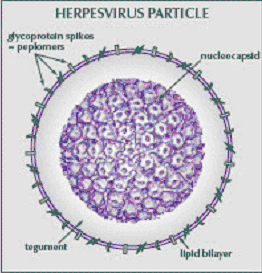Leucovorin (loo-koe-VOR-in) is used as an antidote to the harmful effects of methotrexate (a cancer medicine) that is given in high doses. It is used also to prevent or treat certain kinds of anemia. Leucovorin acts the same way in the body as folic acid, which may be low in these patients.
Leucovorin is also used along with fluorouracil (a cancer medicine) to treat cancer of the colon (bowel).
Leucovorin is available only with a prescription and is to be given only by or under the supervision of your doctor. It is available in the following dosage forms:
In deciding to use a medicine, the risks of taking the medicine must be weighed against the good it will do. This is a decision you and your doctor will make. For leucovorin, the following should be considered:
Allergies—Tell your doctor if you have ever had any unusual or allergic reaction to leucovorin. Also tell your health care professional if you are allergic to any other substance, such as foods, sulfites or other preservatives, or dyes.
Pregnancy—Studies on effects in pregnancy have not been done in either humans or animals.
Breast-feeding—It is not known whether leucovorin passes into the breast milk. However, it has not been reported to cause problems in nursing babies.
Children—In children with seizures, leucovorin may increase the number of seizures that occur.
Older adults—Many medicines have not been studied specifically in older people. Therefore, it may not be known whether they work exactly the same way they do in younger adults or if they cause different side effects or problems in older people. There is no specific information comparing use of leucovorin in the elderly with use in other age groups.
Other medicines—Although certain medicines should not be used together at all, in other cases two different medicines may be used together even if an interaction might occur. In these cases, your doctor may want to change the dose, or other precautions may be necessary. Tell your health care professional if you are taking any other prescription or nonprescription (over-the-counter [OTC]) medicine.
Other medical problems—The presence of other medical problems may affect the use of leucovorin. If you are taking leucovorin as an antidote to methotrexate, make sure you tell your doctor if you have any other medical problems, especially:
Kidney disease—Levels of methotrexate may be increased because of its slower removal from the body, so the dose of leucovorin may not be enough to block the unwanted effects of methotrexate
Nausea and vomiting—Not enough leucovorin may be absorbed into the body to block the unwanted effects of methotrexate
It is very important that you take leucovorin exactly as directed , especially when it is being taken to counteract the harmful effects of cancer medicine. Do not miss any doses. Also, it is best to take the doses at evenly spaced times day and night . For example, if you are to take 4 doses a day, the doses should be spaced about 6 hours apart. If this interferes with your sleep or other daily activities, or if you need help in planning the best times to take your medicine, check with your health care professional.
Do not stop taking leucovorin without checking with your doctor . It is very important that you get exactly the right amount.
Dosing—The dose of leucovorin will be different for different patients. Follow your doctor's orders or the directions on the label . The following information includes only the average doses of leucovorin. If your dose is different, do not change it unless your doctor tells you to do so.
The number of tablets or doses of injection that you take depends on the strength of the medicine. Also, the number of doses you take each day, the time allowed between doses, and the length of time you take the medicine depend on the medical problem for which you are taking leucovorin .
For use as an antidote to methotrexate:
For oral (tablets) or injection dosage forms:
Adults, teenagers, and children—Dose is based on body size and must be determined by your doctor.
For use as an antidote to other medicines:
For oral (tablets) or injection dosage forms:
Adults, teenagers, and children—Dose may range from 0.4 milligrams (mg) to 15 mg a day and must be determined by your doctor.
For certain kinds of anemia:
For oral (tablets) or injection dosage forms:
Adults, teenagers, and children—Up to 1 mg a day.
For colon cancer:
For injection dosage forms:
Adults and teenagers—Dose is based on body size and must be determined by your doctor.
Children—Dose must be determined by your doctor.
Missed dose—If you miss a dose of leucovorin or if you vomit shortly after taking a dose, check with your doctor right away . Your doctor may want you to take extra leucovorin to make up for what you missed. Do not take more medicine on your own, however, since it is very important that you receive just the right dose at the right time.
Storage—To store this medicine:
Keep out of the reach of children.
Store away from heat and direct light.
Do not store in the bathroom, near the kitchen sink, or in other damp places. Heat or moisture may cause the medicine to break down.
Do not keep outdated medicine or medicine no longer needed. Be sure that any discarded medicine is out of the reach of children.
Along with its needed effects, a medicine may cause some unwanted effects. Leucovorin usually does not cause any side effects.
However, check with your doctor immediately if any of the following side effects occur shortly after you receive this medicine:
Rare
Skin rash, hives, or itching; wheezing
Check with your doctor as soon as possible if the following side effect occurs:
Rare—reported with use in treatment of cancer
Convulsions (seizures)

